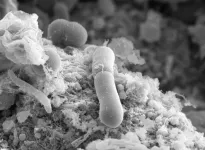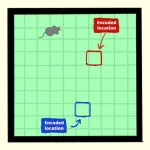(Press-News.org) A new Yale study finds that the effects of long COVID have caused many Americans to miss extensive work time, and that 14% of study participants reported not returning to work in the months after their infection.
The findings, published recently in PLOS One, suggest that long COVID may have affected millions of Americans and generated steep economic costs, highlighting the need for policies to support those with the condition, researchers said.
The study drew on a long-term survey of individuals who contracted COVID-19 — dubbed Innovative Support for Patients with SARS-CoV-2 Infections Registry, or INSPIRE — that began recruiting participants in the fall of 2020 and continued through summer 2022. More than 6,000 participants — at eight study sites in Illinois, Connecticut, Washington, Pennsylvania, Texas, and California — received surveys upon recruitment and every three months thereafter for 18 months.
The Yale researchers focused specifically on participant responses to questions pertaining to work — including whether they returned to work after contracting COVID-19 and how many workdays they missed due to COVID-19-related symptoms. They also assessed how many symptoms participants experienced after having COVID-19.
Among the nearly 3,000 participants who were employed prior to the pandemic, almost 10% reported having five or more symptoms three months after having contracted COVID-19.
“And this number was important because we’ve shown in previous studies that the number of symptoms someone has after being infected with SARS-CoV-2 may be more indicative of how severe their long COVID is,” said Arjun Venkatesh, lead author of the study and chair of the Department of Emergency Medicine at Yale School of Medicine.
The researchers also found that more than 7% of participants missed more than 10 days of work in the three months following SARS-CoV-2 infection due to COVID-19 symptoms. (Most of the study data was collected after the U.S. Centers for Disease Control and Prevention reduced their recommended isolation period to five days for those with COVID-19.) Additionally, nearly 14% of participants did not return to work within three months after their infection; those with five or more symptoms were more than twice as likely to not return to work than individuals with no symptoms.
“We found that having five or more symptoms three months after infection was strongly associated with not returning to work,” said Venkatesh. “And when we compare the rates observed in this study to the national population, it could mean as many as 2 million people may be out of work because of post-COVID conditions.”
This is especially startling, Venkatesh said, since the participants in this study were fairly young; the average age was roughly 40.
“This has big economic impacts,” he added. “It also has impacts on those people individually in terms of their own income security and their ability to care for themselves and their families.”
At the beginning of the pandemic, Venkatesh said, policymakers enacted key measures to offer economic relief and support to Americans, including federal legislation that helped workers remain employed even if they weren’t able to work and to weather the economic storm of the initial part of the pandemic. But the economic and personal costs of long COVID have not yet received the same level of attention, he said.
As public health officials and lawmakers consider the long-term health and economic effects of COVID-19 and long COVID, said Venkatesh, they may want to assess how disability policy should address long COVID and whether to support work transitions for people whose long COVID symptoms prevent them from returning to their previous jobs.
“Given the millions of people who have had COVID-19 in the United States and the millions of people that report prolonged symptoms, this is not a small problem,” said Venkatesh. “So it does require big interventions.”
END
YALE NEWS: Sick days: Assessing the economic costs of long COVID
2024-08-15
ELSE PRESS RELEASES FROM THIS DATE:
Equity weighting increases the social cost of carbon, warrants careful dialogue
2024-08-15
In a Policy Forum, Brian Prest and colleagues discuss how new regulatory guidelines from the U.S. Office of Management and Budget (OMB), known as Circular A-4, could impact the social cost of carbon (SCC). The new equity weighting approach recommended by the OMB, they say, leads to a dramatic increase in SCC estimates, and thus requires careful dialogue and discussion. The social cost of carbon is an estimate of the economic damage caused by emitting an additional ton of carbon dioxide into the atmosphere. It helps guide decisions about balancing the costs of reducing emissions with the benefits of mitigating climate change. Traditionally, ...
Chicxulub impactor was a carbonaceous-type asteroid from beyond Jupiter
2024-08-15
Scientists have pinpointed the origin and composition of the asteroid that caused the mass extinction 66 million years ago, revealing it was a rare carbonaceous asteroid from beyond Jupiter, according to a new study. The findings help resolve long-standing debates about the nature of Chicxulub impactor, reshaping our understanding of Earth's history and the extraterrestrial rocks that have collided with it. Earth has experienced several mass extinction events. The most recent event occurred 66 million years ago at the boundary between the Cretaceous and Paleogene eras (K-Pg boundary) and resulted in the loss of roughly 60% of the planet’s species, including non-avian dinosaurs. ...
A role for a newly identified brain activity during sleep-dependent memory consolidation
2024-08-15
A newly identified activity in the brain that occurs while we sleep – a barrage of action potentials, or a BARR – plays a crucial role in rebalancing the hippocampal neural network during memory consolidation. The findings offer fresh insights into how our brains preserve memories while maintaining stability, as we slumber. Memory consolidation – a process that stabilizes and strengthens our recent experiences into long-term memories – occurs when we sleep. During the non-rapid eye movement (NREM) phase of sleep, ...
Scientists discover superbug's rapid path to antibiotic resistance
2024-08-15
Researchers at the University of Sheffield have discovered how a hospital superbug Clostridioides difficile (C.diff) can rapidly evolve resistance to vancomycin, the frontline drug used in the UK
Scientists found that in less than two months the bacteria could develop resistance to 32 times the initial antibiotic concentration
C.diff, a type of bacteria which often affects people who have been taking antibiotics, has been identified by the World Health Organisation as one of the top global public health threats, and is responsible ...
New technique prints metal oxide thin film circuits at room temperature
2024-08-15
Researchers have demonstrated a technique for printing thin metal oxide films at room temperature, and have used the technique to create transparent, flexible circuits that are both robust and able to function at high temperatures.
“Creating metal oxides that are useful for electronics has traditionally required making use of specialized equipment that is slow, expensive, and operates at high temperatures,” says Michael Dickey, co-corresponding author of a paper on the work and the Camille and Henry Dreyfus Professor of Chemical and Biomolecular Engineering at North Carolina State University. “We wanted ...
Sleep resets neurons for new memories the next day
2024-08-15
ITHACA, N.Y. – While everyone knows that a good night’s sleep restores energy, a new Cornell University study finds it resets another vital function: memory.
Learning or experiencing new things activates neurons in the hippocampus, a region of the brain vital for memory. Later, while we sleep, those same neurons repeat the same pattern of activity, which is how the brain consolidates those memories that are then stored in a large area called the cortex. But how is it that we can keep learning new things for a lifetime without using up all of our neurons?
A new study, “A Hippocampal Circuit Mechanism ...
Navigating the future: brain cells that plan where to go
2024-08-15
Researchers from the RIKEN Center for Brain Science (CBS) in Japan have discovered a region of the brain that encodes where an animal is planning to be in the near future. Linked to internal maps of spatial locations and past movements, activity in the newly discovered grid cells accurately predicts future locations as an animal travels around its environment. Published in Science on August 15, the study helps explain how planned spatial navigation is possible.
It might seem effortless, but navigating the world requires quite a bit of under-the-hood brain activity. For ...
The brain creates three copies for a single memory
2024-08-15
The ability to turn experiences into memories allows us to learn from the past and use what we learned as a model to respond appropriately to new situations. For this reason, as the world around us changes, this memory model cannot simply be a fixed archive of the good old days. Rather, it must be dynamic, changing over time and adapting to new circumstances to better help us predict the future and select the best course of action. How the brain could regulate a memory’s dynamics was a mystery – until multiple memory copies ...
Breakthrough addresses sex-related weight gain and disease
2024-08-15
ITHACA, N.Y. -- A decline in estrogen during menopause causes changes in body fat distribution and associated cardiovascular and metabolic disease, but a new study identifies potential therapies that might one day reverse these unhealthy shifts.
The study, “Cxcr4 Regulates a Pool of Adipocyte Progenitors and Contributes to Adiposity in a Sex-Dependent Manner,” was published Aug. 5 in Nature Communications.
The researchers discovered that a receptor called Cxcr4, when blocked in mice, reduced the tendency of fat stem cells to develop into white fat, also called white adipose tissue. This treatment could potentially be combined with low doses of estrogen therapy to cut ...
As human activities expand in Antarctica, scientists identify crucial conservation sites
2024-08-15
A team of scientists led by the University of Colorado Boulder has identified 30 new areas critical for conserving biodiversity in the Southern Ocean surrounding Antarctica. In a study published Aug. 15 in the journal Conservation Biology, the researchers warn that without greater protection to limit human activities in these areas, native wildlife could face significant population declines.
“Many animals are only found in the Southern Ocean, and they all play an important role in its ecosystem,” said Cassandra Brooks, the paper’s senior author and associate professor in the Department of Environmental Studies and a fellow of the ...




